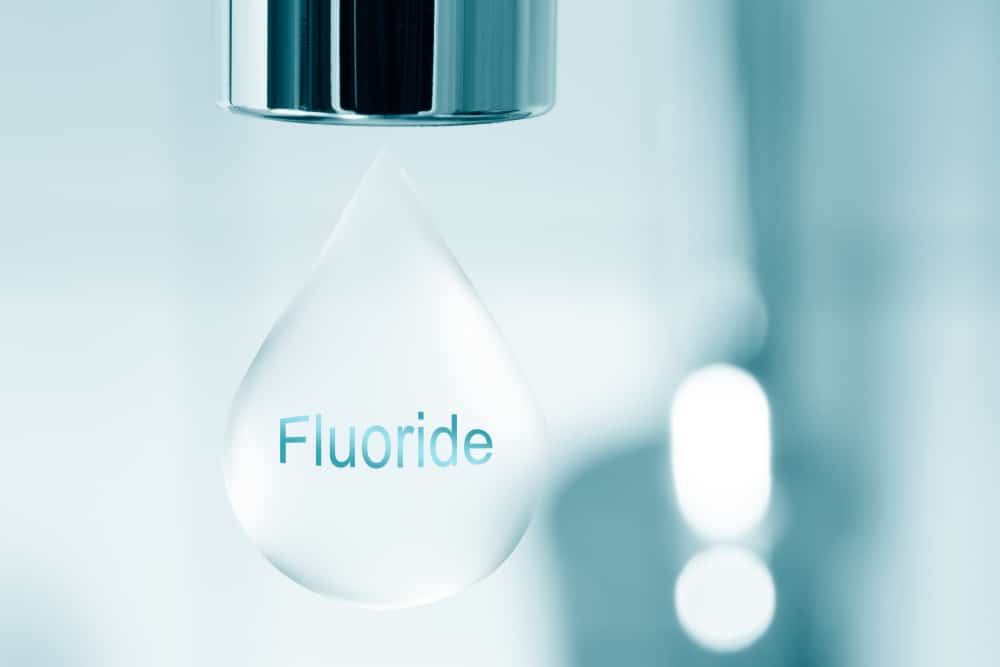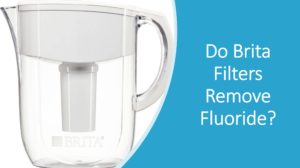Does water filters remove fluoride? The short answer is “sometimes,” while the long answer is that reverse osmosis, distillation, and gravity filters are the best at removing fluoride, while carbon filters can remove some but not all fluoride present in water.
If you’re concerned about the level of fluoride in your drinking water, installing one of the water filters mentioned above can be an effective way of removing fluoride and bringing you that much-needed peace of mind.
Do Water Filters Remove Fluoride?
Yes, water filters are an efficient and affordable way of removing fluoride from water. Make sure to check your water filter for NSF certification against fluoride.
There are 4 popular methods that can be used to remove fluoride from water: activated alumina filters, strong base anion exchange filters, reverse osmosis filters, and distillation. We talked about them in our how to remove fluoride from water guide.

Types of Water Filters that Remove Fluoride
Let’s take a look at the most popular kinds of water filters you can find online and in stores to determine which ones are successful at removing fluoride from water.
We talked extensively on this in our best fluoride water filter article.
Carbon filters include PUR, Brita, and Zerowater. These popular water filters improve the taste of water by filtering out chlorine, but unfortunately, they usually can’t remove fluoride as well.
Some carbon filters can reduce the level of fluoride without completely removing it, however, like in the case of the TAPP 2. This filter can remove up to 70% of fluoride without totally removing its presence from your water, but even this improvement can go a long way.
Reverse osmosis filters, also known as RO filters, can do a great job at removing fluoride from your drinking water.
In RO filters, water has to pass through a semipermeable membrane whose job is to trap and remove contaminants. This is where the filter can remove about 95% of fluoride from your water.
Most RO filters come in the form of under-sink filters that will need to be added to your plumbing. You can connect this to a separate tap so that you’re only filtering out drinking water or water used to prepare food with, not the water that you’re washing your hands or cleaning with.
These filters can create waste water, so only using them when necessary is a smart way to be more conservative.
Some gravity water filters are extremely efficient at reducing fluoride levels by utilizing the effects of gravity to let the water drain through a ceramic filter, keeping fluoride out and all the good water in.
Gravity filters can be much more effective at removing fluoride than RO systems, eliminating it by up to 97%.
Water pitcher filters like Brita can usually filter out at least some fluoride since they primarily rely on carbon filters. It depends on the type of filter, however. If you find a water pitcher that uses a different filtration system, there’s a chance it would have the same effect on fluoride.
Countertop water filters can sometimes remove fluoride as one of the main contaminants. Again, as with water pitcher filters, it mainly depends on the type of filter used. These are usually RO or carbon filters, which can be somewhat effective at removing fluoride.
Distillation is one of the other methods listed by the WQA to remove fluoride from water. You can either buy the water already distilled or distill it yourself slowly or you can buy a water distiller tool that will speed up the process while giving you the same desired effects.
Why Should You Filter Fluoride?
Why would someone want to know if filters can remove fluoride from water? Fluoridation is approved by most medical and dental associations, and experts say it’s a safe way to reduce cavities and keep teeth strong.
However, studies also show that fluoride should be used topically instead rather than being ingested. This would use fluoride in dental products like mouthwash or toothpaste rather than in the water supply.
Too much fluoride exposure can lead to bone fractures, thyroid problems, and even malfunctions in young brain development. It can also lead to skeletal fluorosis, a serious bone disorder that is similar to osteoporosis and entails extreme hardness and fragility of the bones.
In children, it can also cause discoloration of teeth for kids under nine years old or pitting of the teeth in children of all ages.
For these reasons, it’s understandable that many consumers have worries about drinking fluoridated water.







A bone char filter is available to address the issue that activated carbon may not be able to handle fluoride. Activated carbon is created from cleaned and carefully chosen animal bones as bone char. It is by far the most effective and economical method of removing fluoride from water.